Learn more about our work in the Rio Grande Valley.
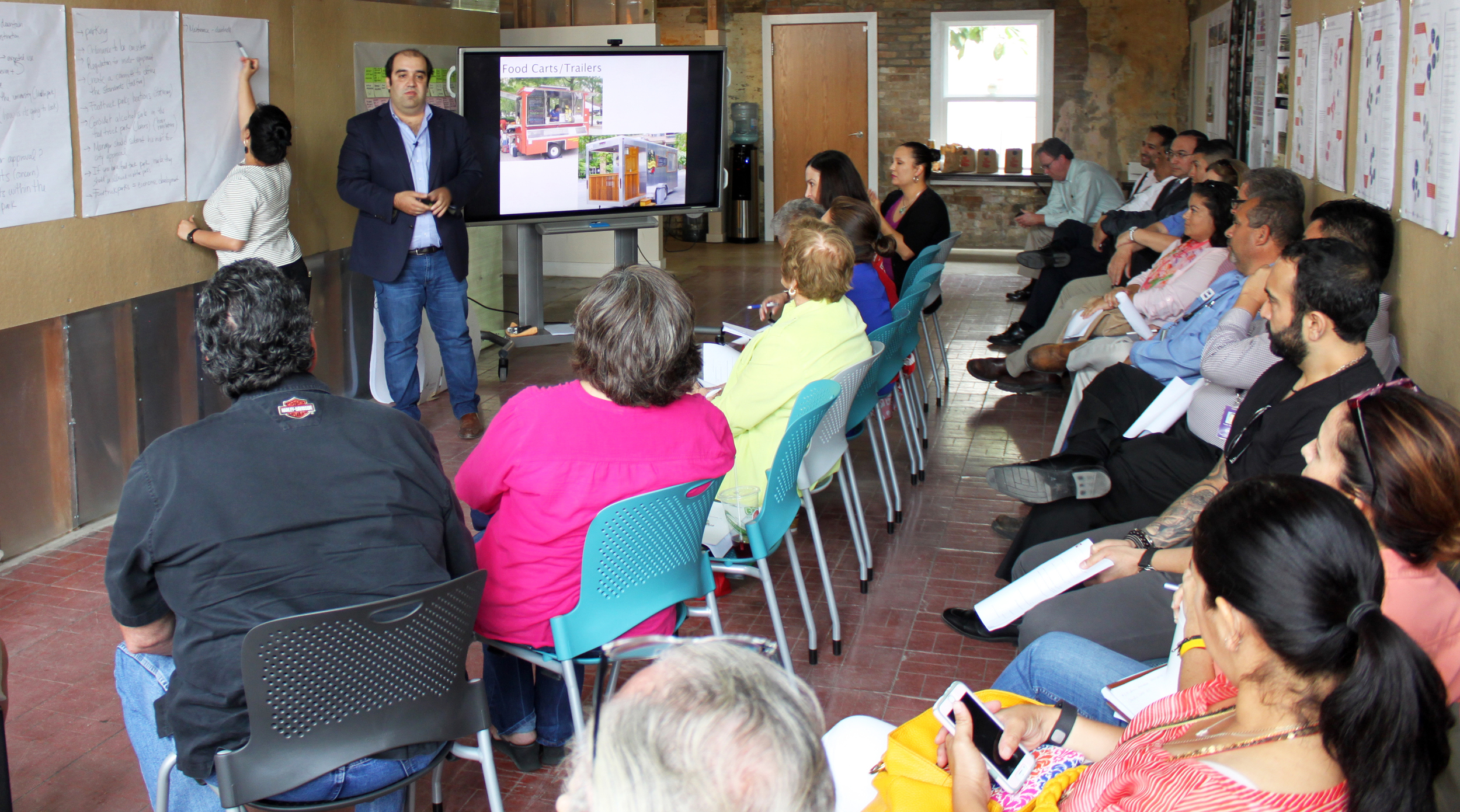
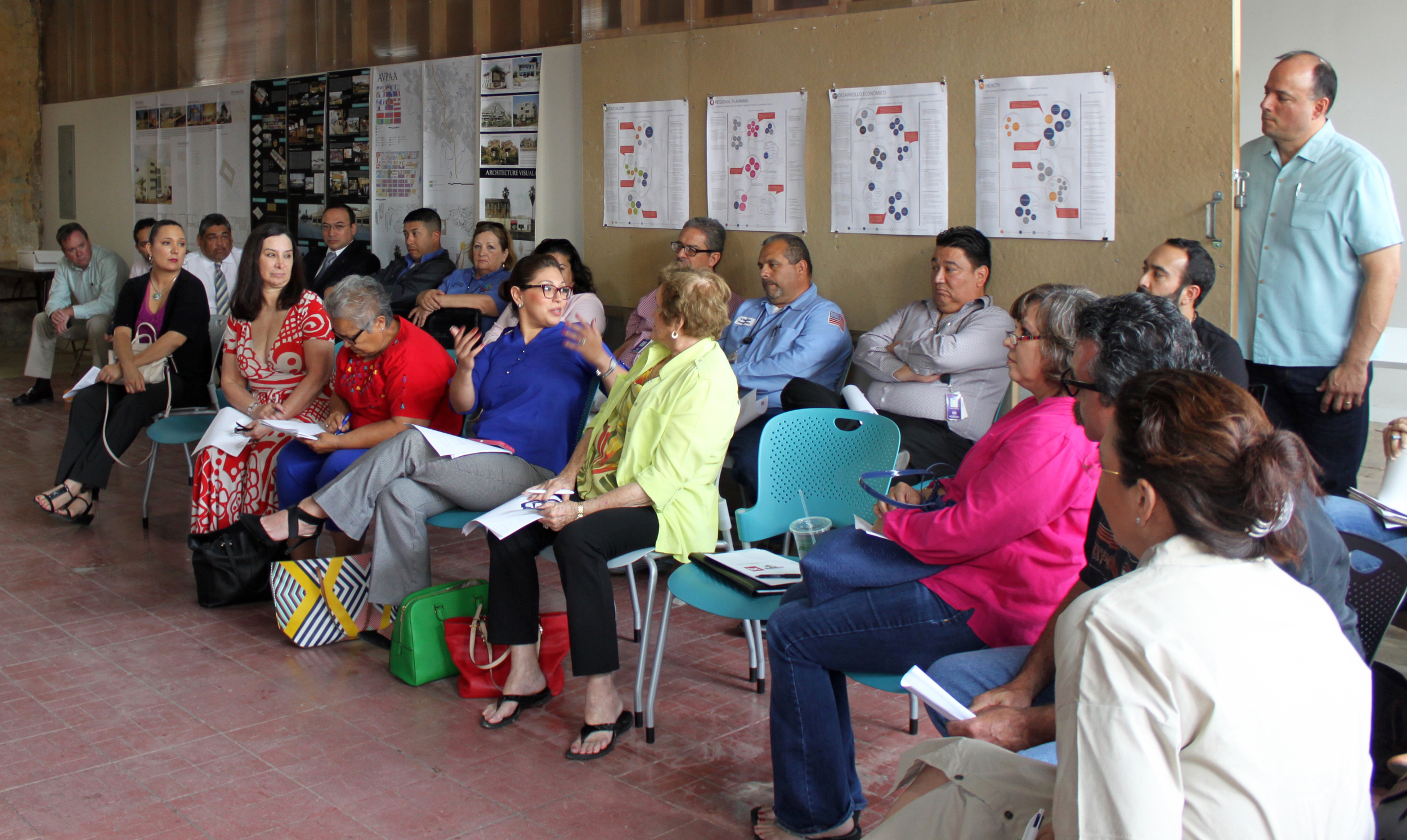
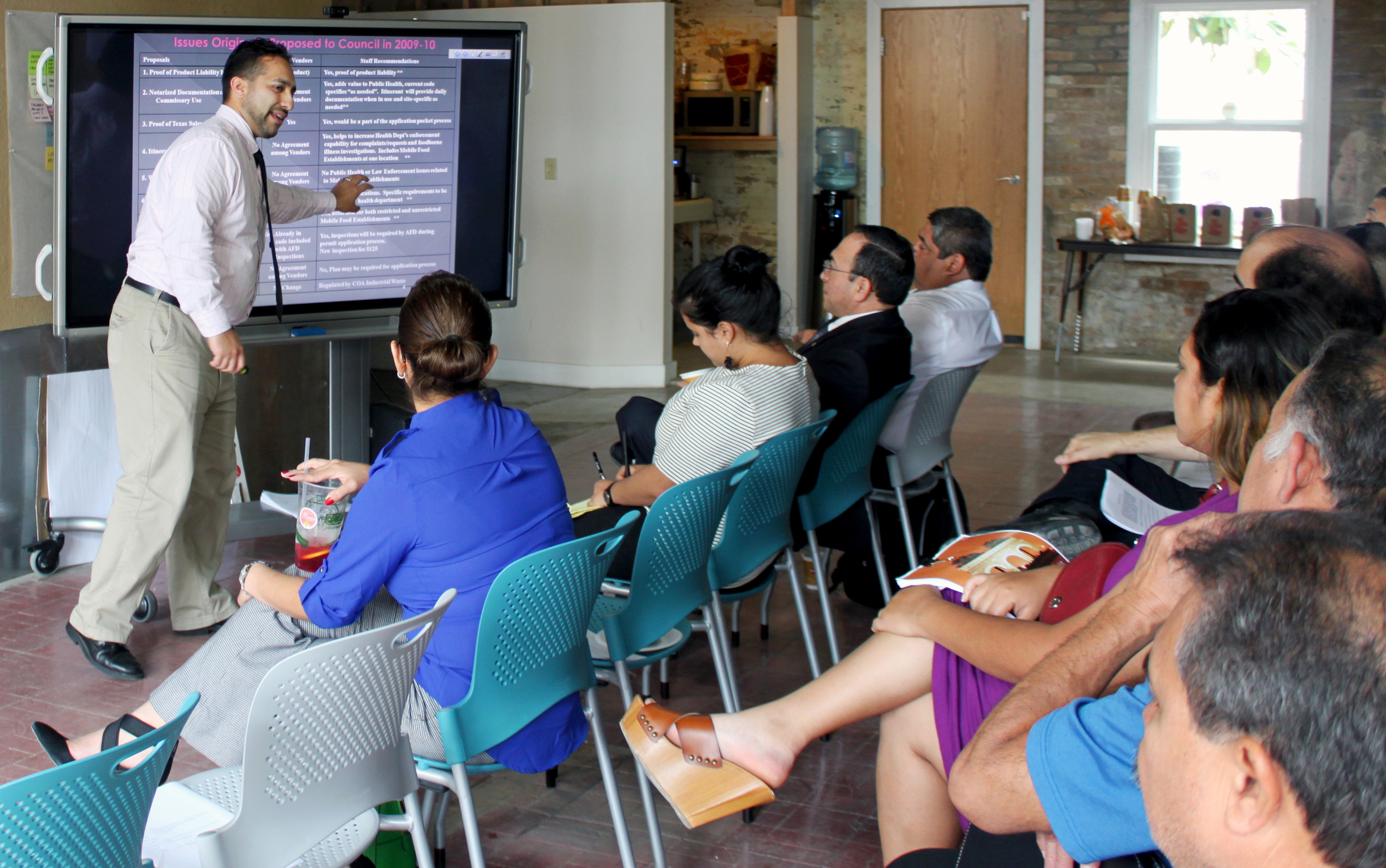
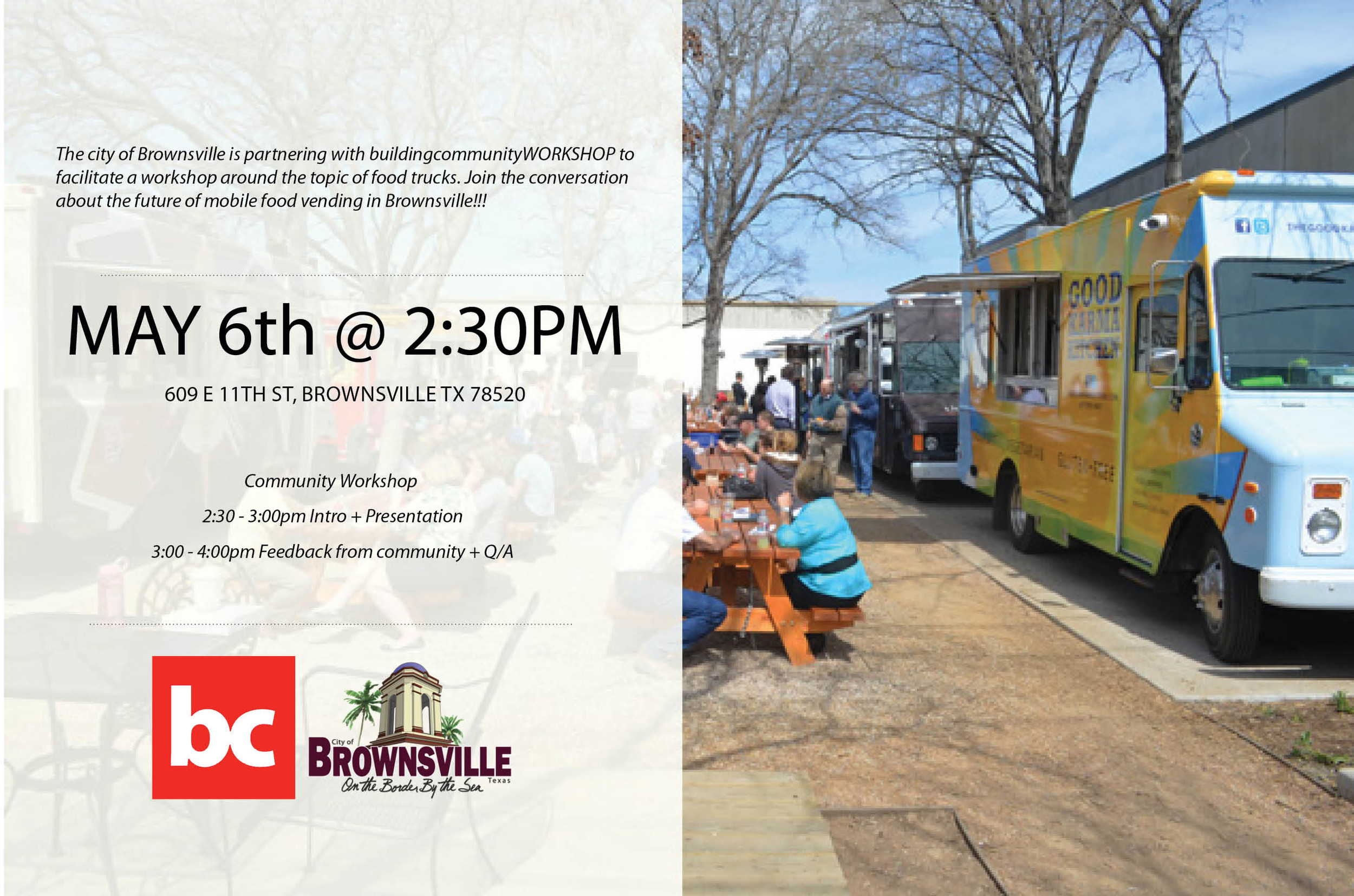
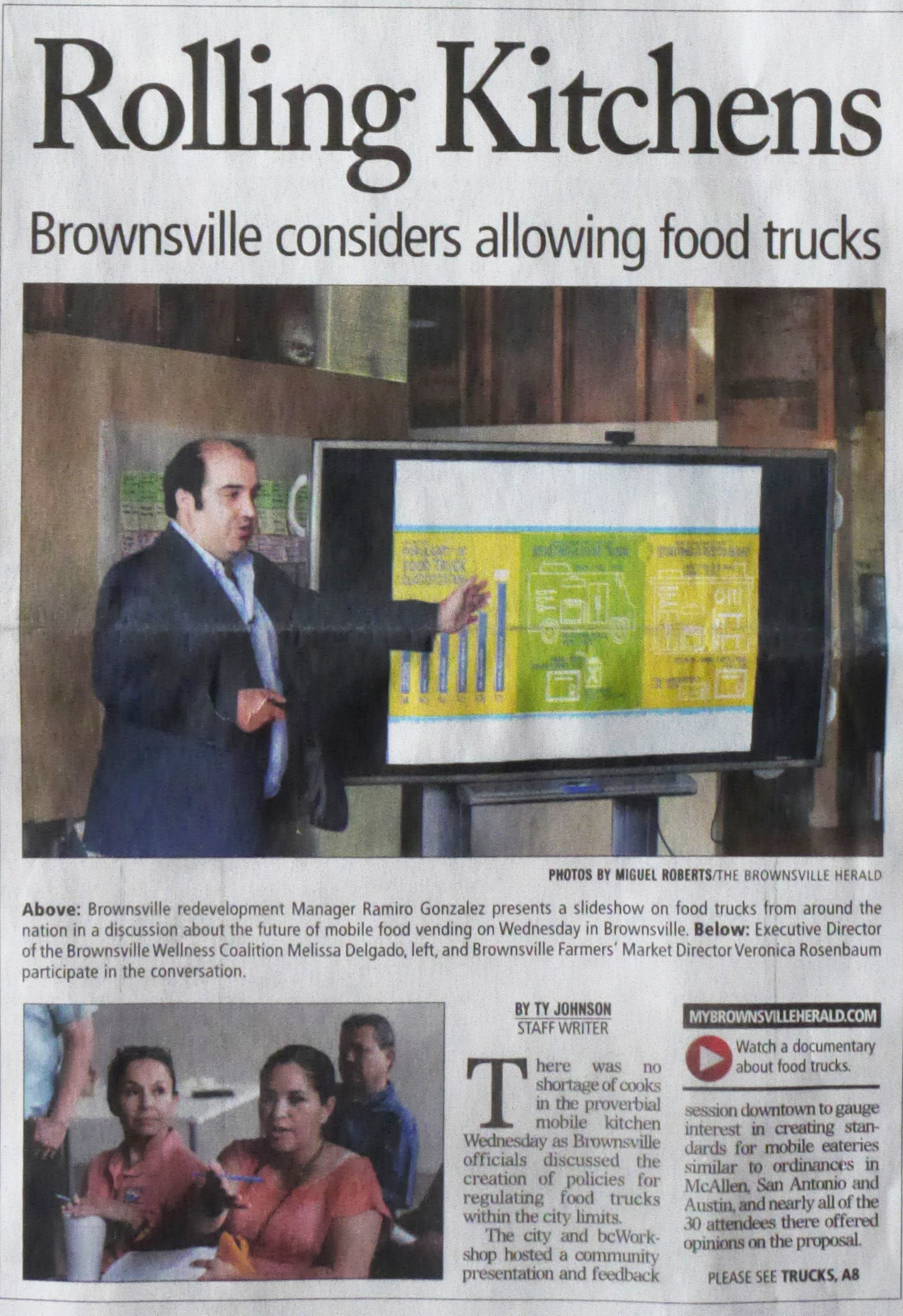
Elotes, raspados and tacos are just some of the many popular Mexican street foods that form a large part of street life and urban culture in areas along the U.S.-Mexico border, including the Rio Grande Valley. In spite of their enormous popularity, mobile vendors selling those items often operate through the gaps of vague regulations in areas like Brownsville, where food trucks and food trailers are not allowed. Most mobile food vendors in Brownsville operate primarily during special events, such as Charro Days or at the local flea market.
[bc] and the City of Brownsville teamed up for a community outreach workshop on May 6 to discuss the possibility of adjusting codes and ordinances to regulate mobile food vending units and explore the possibility of a food truck park pilot in Brownsville as part of the programming of the Brownsville City Design Studio. During the workshop, Brownsville Redevelopment Director Ramiro Gonzalez gave an overview of the current situation regarding the city's mobile food vendors as well as ideas on how to regulate mobile food vending. Many cities have incorporated food truck parks into their city planning with great success: Austin and McAllen are two prominent examples that were showcased at the May 6 workshop.
Attendees provided creative ideas to incorporate food trucks to Brownsville’s landscape. One workshop attendee suggested allowing mobile food vendors to operate in existing city parks or vacant land instead of creating new space for them. Others suggested placing food trucks in areas that needed food vibrancy, like the Mitte Cultural District. Though most attendees were in favor of the creation of one or multiple food truck parks, there were a small number of particularly vocal opponents: these opponents were concerned that the mobile food vendors were "unsanitary" and not subject to the same regulations as standard food businesses.
However, according to [bc] advocate Elaine Morales, the disagreement over the cleanliness of mobile food vendors in the RGV is also linked to another principle: aesthetics.
In the past, mobile food vendors added multiple attachments to their units or removed the wheels from their units In their quest to comply with local regulations that in many cases were created for brick and mortar restaurants. For example, a vendor who sells raspados, a type of snow cone, will often add a sink to the side of their cart in order to comply with a city rule that requires all food vendors to have access to a hand washing sink. In spite of this, workshop attendees and local food business owners expressed sanitary concerns about mobile food vendors handling money with the same hands that they used to handle food.
Cultural norms around what a food vendor is also differ significantly between geographies - the mobile food vendor units that currently exist in the RGV differ considerably from what many citizens see in cities like Austin: brightly-lit, large food truck parks with trash cans, benches and tables for patrons. Substandard units in the RGV have affected the perception of what mobile vending units can be.
"One of the opponents to food trucks at the community workshop had admitted that she had never been to a food truck park,” said Morales.
The conversation about food trucks in Brownsville will continue with the creation of a committee or task force involving both the city and its citizens. One city official from Austin, Marcel Elizondo, recalls that it took their city almost 19 months to finalize regulations for mobile food vendors.
More community-focused workshops in Brownsville beyond the topic of mobile food vendors are in the works for the next months.
![[bc]](http://images.squarespace-cdn.com/content/v1/5248ebd5e4b0240948a6ceff/1412268209242-TTW0GOFNZPDW9PV7QFXD/bcW_square+big.jpg?format=1000w)